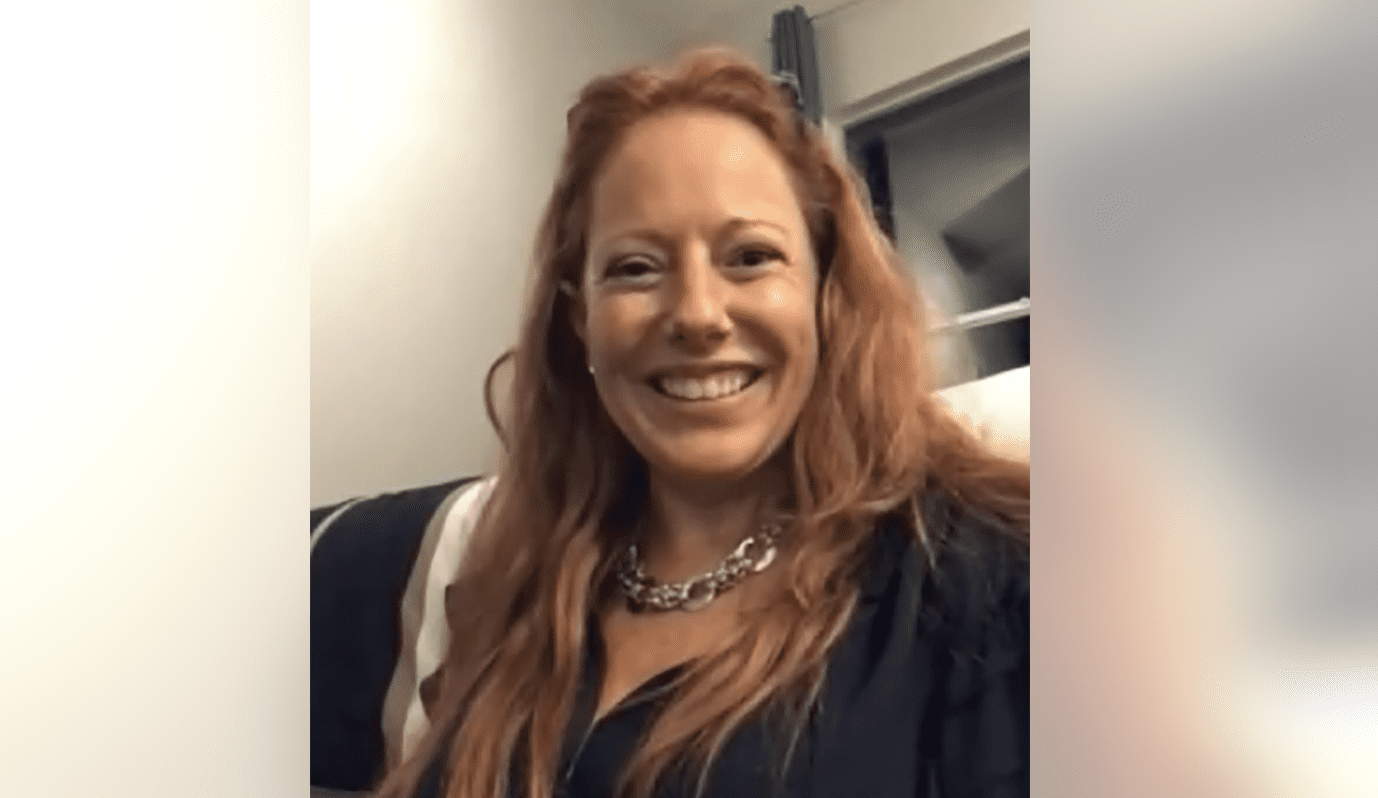Daily Headlines | Tuesday October 19, 2021

Good Morning!
It’s been almost sixty years (1962) since Bob Dylan first sang:
“How many times can a man turn his head, and pretend that he just doesn’t see?”
Truth, time and technology force and pose the same question to those who continue to support the unfettered killing of innocent pre-born life. And after nearly a half-century, an answer to Dylan’s rhetorical and lyrical question seems in the offing, especially as we barrel towards December arguments at the Supreme Court:
1. Supreme Court will consider fast track appeal of Texas abortion law
From CNBC:
The Supreme Court on Monday agreed to a request from abortion-rights advocates and providers to quickly consider taking up their challenge of a restrictive Texas law that bans most abortions after as early as six weeks of pregnancy.
If the court agrees to consider the case on an expedited basis, it could accept briefs, hear arguments and deliver a ruling much faster than if the case had to wind through the normal court channels. Though the case is pending in the U.S. Court of Appeals for the 5th Circuit, arguments would not be held until December at the earliest, the petitioners said.
A pivotal abortion case is already set for oral argument on Dec. 1. Proponents of abortion rights fear the court, with its 6-3 conservative majority, could weaken or abolish decades-old precedent protecting the right to an abortion before fetal viability.
RELATED: Politico: Biden administration asks Supreme Court to block Texas abortion ban
- Abortion is Not an Act of Love
Focus on the Family’s Zachary Mettler writes for The Christian Post:
The abortion industry often uses lofty language to dress up appalling actions. Phrases like “termination of a pregnancy,” “abortion care,” “reproductive health care” and “pro-choice” are just a smattering of examples.
During the House Oversight Committee’s hearing on newly enacted pro-life laws, Dr. Ghazeleh Moayedi, an OB-GYN, testified against Texas Senate Bill 8 (SB8). The bill took effect on September 1 and outlawed abortions after a preborn baby’s heartbeat can be detected.
While speaking against SB8, Dr. Moayedi added this pernicious line:
“I know firsthand that abortion saves lives. For the thousands of people I’ve cared for, abortion is a blessing, abortion is an act of love, abortion is freedom (emphasis added).”
If you did a double-take after reading that, you’re not alone.
These brash and brazen lies should shock the conscience.
Americans frequently pride themselves on living in the freest, greatest, and most exceptional nation on earth. Why else would a nearly 20 foot tall, bronze Statue of Freedom sit atop our U.S. Capitol building?
But consider, can a nation that kills nearly 1 million preborn children each year really be called “exceptional,” “great” or “free”?
If you were one of the hundreds of thousands of preborn children aborted in the United States this year, how would you see our nation?
To be clear, abortion isn’t an act of love.
Choosing life is.
3. Students for Life Launches ‘Campaign for Abortion Free Cities’ to Change Minds, Save Lives
From The Daily Citizen:
The pro-life, nonprofit organization Students for Life of America (SFLA) has launched a massive new effort to change minds on the issue of abortion and save the lives of preborn babies.
The Campaign for Abortion Free Cities involves an initial planned investment of up to $5 million from SFLA. According to the organization, it is “a first-of-its-kind, multi-faceted approach to abolishing abortion in 20 major cities.”
In an interview with The Daily Citizen, Kristan Hawkins, founder and president of Students for Life, expressed her excitement about the new campaign.
“At Students for Life, our goal is to help women never feel like they have to choose abortion to achieve the life of their dreams,” Hawkins said. “Everyone knows where their local Planned Parenthood is. But very few know where their local PRC is.”
The campaign involves a four-pronged approach to engage individuals on the life issue:
- College campuses
- Computers (digital engagements)
- Churches
- Communities
4. Thirty years on the Supreme Court
From World Magazine:
Last Friday marked the 30th anniversary of Justice Clarence Thomas’s confirmation to the Supreme Court. His staid, often quiet presence disguises a tenacious commitment to judicial conservatism.
One way to commemorate his anniversary is to admit something upfront: I believe Clarence Thomas has the most enthralling—and deeply American—biography of any living American.
Such a claim demands careful scrutiny.
For years, numerous friends had said his acclaimed autobiography, My Grandfather’s Son, was one of the most intriguing and satisfying autobiographies of any living person. With the world shut down in March 2020, I had more than enough time to finally read Thomas’s biography. Rare is the occasion where I cannot put a book down. This was one such occasion.
The book confirms that one of the narratives Americans live by is indeed true, and that is the way of meritocratic mobility. The virtues of hard work and personal responsibility really can lead to success. It is not healthy or right for Americans to see themselves as bound to a permanent economic underclass or caste. Clarence Thomas embodies the American spirit.
5. School Choice’s Antiracist History
From the Wall Street Journal:
As early as 1955, economists such as Friedman began touting vouchers as a strategy to expedite integration. Virginia’s segregationist hard-liners recognized the likely outcomes and began attacking school choice as an existential threat to their white-supremacist order.
The overlooked story of Virginia’s racist antivoucher movement traces its origins to Charlottesville’s Venable Elementary School in 1958. Facing court-ordered integration from an NAACP lawsuit, Venable closed its doors for the fall semester and transferred its white student body to a makeshift network of private classrooms.
- ACLU backs compelled speech policy in Loudoun County, Virginia
From the Post Millennial:
The ACLU filed a brief in opposition to free speech. The American Civil Liberties Union, which has been on the decline with regard to its defense of citizens rights just as it has been increasing its adherence to backing the progressive political status quo, is fighting against public school teachers who do not believe they should be compelled to ally with views to which they are fundamentally opposed.
The issue is pronouns, and whether teachers should be compelled to use pronouns of a student’s choosing, and the venue is the much maligned school district of Loudoun County, Virginia.
A policy in that school district requires teachers to use the pronouns dictated by a student for that student. A physical education teacher at Leesburg Elementary School, Byron “Tanner” Cross, was told that he must use a student’s preferred pronouns. He refused, and was placed on administrative leave in May.
Cross had made his feelings known during a school board meeting, wherein he stated that he “will not affirm that a biological boy can be a girl, and vice versa,” as it went against his religious beliefs. “I love all of my students, but I will never lie to them regardless of consequences,” he said.
- China to consider law to punish parents for young children’s ‘very bad behavior’
From The Hill:
China’s parliament will move to consider legislation that would punish parents for the crimes or “very bad behavior” of their young children.
The National People’s Congress (NPC) Standing Committee will review the draft of the law at a session this week, according to Reuters.
The draft family education promotion law would require guardians of children who commit crimes or partake in very bad behavior to go through a family education guidance program. The draft also encourages parents to allocate time for their children to rest, play and exercise, Reuters reported.
“There are many reasons for adolescents to misbehave, and the lack of or inappropriate family education is the major cause,” Zang Tiewei, spokesman for the NPC’s Legislative Affairs Commission, said to Reuters.
8. Missionary Kidnappings in Haiti a Reminder the Great Commission Takes Great Sacrifice
From The Daily Citizen:
Here is the reality: countless missionaries around the world are in constant danger, living day to day and protected only by God’s grace and favor. News of a kidnapping startles us and propels us to pray for them – but we should be praying for missionaries every single day.
North Carolina pastor Robert C. Shannon, a strong advocate and champion of international evangelism, once observed:
“Never pity missionaries. Envy them. They are where the real action is – where life and death, sin and grace, Heaven and Hell converge.”
It might seem countercultural or even foolish to envy seventeen missionaries being held captive by a thuggish and violent gang. And it very well may – at least according to our current understanding of “envy.”
But what Pastor Shannon is getting at, I think, is that missionaries enjoy a unique and powerful perspective that those of us (seemingly) safely ensconced in our American churches will never fully appreciate.
Pursuing the Great Commission remains the world’s most dangerous occupation. And yet it pays very poorly by every earthly means. But there is no greater pursuit that pays as rich and rewarding an eternal dividend.
Let’s pray for these seventeen saints – and for all those around the world sharing the Good News of Jesus Christ to a hurting world.
- Colin Powell now passes into legend
From the Washington Examiner:
The first diary entry in which former President Ronald Reagan mentioned General Colin Powell, Reagan’s initial impression provided a concise summary of what the broader world would soon come to know.
“He’s a good man,” wrote Reagan. And so he was.
Powell, the former national security adviser, chairman of the Joint Chiefs of Staff, and secretary of state, died Monday at age 84 of a combination of multiple myeloma and complications from COVID-19. History will record his career among the most distinguished in American military and diplomatic history. Yet lists of career accomplishments can’t capture the deeper sense he gave to the American public — a sense of solidity and well-placed patriotism, a sense of reassurance that U.S. interests were indeed in the reliable hands of a man whose core was good.
Each of the dozens of times Reagan mentioned Powell in his diaries, the Gipper gave a sense of having the utmost confidence in Powell’s competence and judgment. And that was even before Powell’s star turn in George H. W. Bush’s administration, where as Joint Chiefs chairman he deftly organized the successful mobilization effort for the first Gulf War while offering memorable sound bites in a can-do manner.
10. The Good Decisions I’ve Made
Former MLB Commissioner Fay Vincent writes in the Wall Street Journal:
I made one awful life-changing decision when I was 18 to walk out onto an icy ledge to escape my college dorm room after my roommate locked me in as a prank. I fell and have been partly disabled ever since. But I’ve made some good decisions too.
Perhaps the best decision was something I chose not to do—smoke cigarettes. Now that I’m 83, many of my contemporaries who were dedicated smokers are long gone. I think especially of the wonderful Bart Giamatti, who preceded me as Major League Baseball Commissioner and who once confessed sardonically that the only thing he did at a world-class level was smoke cigarettes. He smoked five packs a day and died at 51 of a heart attack.
I never asked any employer for a raise, and I never took a job based on money. If I did my job, I assumed I would be rewarded, and I was rarely disappointed. One of the most fortunate aspects of my professional life is that I was blessed to work with good people—including the owners of Major League Baseball teams. I believe the people we associate with define our happiness.
When I got to baseball at age 51, I knew little about the Negro Leagues and the history of blacks in baseball. I had to learn quickly. I believe it is important to find professional mentors, and in that stage of my career my mentor was Joe Garagiola, the broadcaster and former catcher for the St. Louis Cardinals. He founded the Baseball Assistance Team, which helped needy former professional baseball players and their families. Through this work he came to understand the tragedy of the pre-Jackie Robinson treatment of blacks in baseball. With his wise counsel and with the dedication of Len Coleman, an MLB executive at the time, we established health benefits and small pensions for retired Negro League players. That effort ranks high on my list of good decisions.
Several years ago, Garagiola called to tell me about a few Catholic nuns who were struggling to keep a tiny school alive on a Native American reservation in the Arizona desert. He supported them energetically and with great generosity until his death in 2016. The school was closed during the Covid crisis, and virtual learning was impossible. The sisters now are trying to make a comeback, and their supporters, including me, are trying to honor our pal Joe and help them return to their work.
In “Candide,” Voltaire ends with a famous line: “Il faut cultiver notre jardin.” We must cultivate our own garden. My garden may be small, but there is much more to be done in it.
ABOUT THE AUTHOR
Related Posts

Daily Headlines | Thursday September 15, 2022
September 15, 2022

Daily Headlines | Wednesday September 14, 2022
September 14, 2022

Daily Headlines | Tuesday September 13, 2022
September 13, 2022

Daily Headlines | Monday September 12, 2022
September 12, 2022
